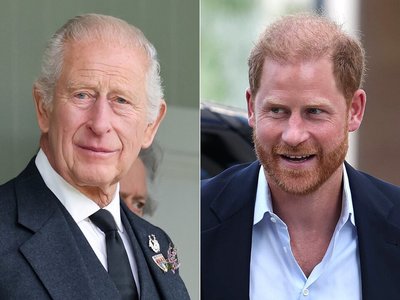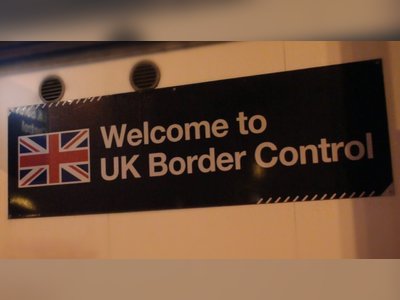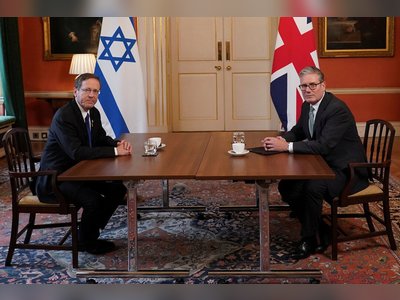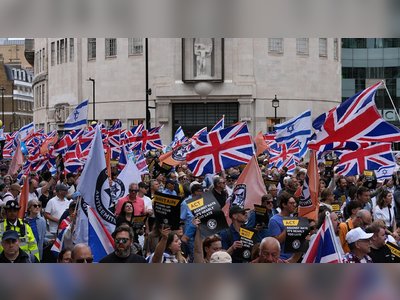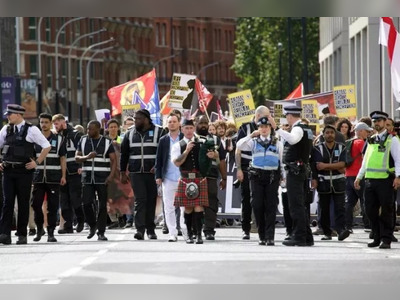Brazilian police say ex-President Bolsonaro had planned to flee to Argentina seeking asylum
Federal police documents reveal plan for political asylum to Argentina’s President Milei following Brazil Supreme Court probe
Federal police investigators in Brazil have uncovered messages and a draft letter on former President Jair Bolsonaro’s phone that suggest he planned to flee to Argentina and seek political asylum.
The material, included in a detailed report submitted to the Supreme Court, dates the draft asylum request to February 10, 2024—just two days after a search of his residence and office amid an investigation into a suspected coup plot.
In the unsigned, undated draft addressed to Argentina’s President Javier Milei, Bolsonaro wrote that he was “in a situation of political persecution in Brazil” and feared for his life, appealing for asylum “under an urgent regime”.
At the time, Bolsonaro had his passport seized, and shortly thereafter he spent two nights at the Hungarian Embassy in Brasília, further fueling speculation about his intentions to evade arrest.
The asylum draft forms part of broader obstruction‑of‑justice allegations against Bolsonaro and his son, Eduardo.
The report accuses Bolsonaro of ignoring court-ordered conditions of his house arrest and of mobilising allies to undermine Brazil’s democratic institutions, including the Supreme Court and Congress.
Justice Alexandre de Moraes, overseeing the case, has demanded that Bolsonaro’s legal team explain within forty‑eight hours his apparent disregard for court conditions and the motive behind drafting an asylum request.
His lawyers have responded that the asylum letter alone does not qualify as evidence of flight risk, noting that Bolsonaro has not fled the country and continues to await trial.
In response to the court’s concerns, Justice de Moraes has ordered heightened security at Bolsonaro’s residence, authorising round‑the‑clock monitoring to ensure compliance with house‑arrest requirements.
Bolsonaro remains under house arrest and faces a coup trial scheduled to conclude in early September.
Should he be convicted, the former president—and possible accomplices—could face decades in prison for their roles in plotting a coup following the 2022 election.
These developments add complexity to the trial, presenting questions of legal accountability, presidential privilege, and potential escape—highlighted by the draft asylum request that remains central to judicial scrutiny.
The material, included in a detailed report submitted to the Supreme Court, dates the draft asylum request to February 10, 2024—just two days after a search of his residence and office amid an investigation into a suspected coup plot.
In the unsigned, undated draft addressed to Argentina’s President Javier Milei, Bolsonaro wrote that he was “in a situation of political persecution in Brazil” and feared for his life, appealing for asylum “under an urgent regime”.
At the time, Bolsonaro had his passport seized, and shortly thereafter he spent two nights at the Hungarian Embassy in Brasília, further fueling speculation about his intentions to evade arrest.
The asylum draft forms part of broader obstruction‑of‑justice allegations against Bolsonaro and his son, Eduardo.
The report accuses Bolsonaro of ignoring court-ordered conditions of his house arrest and of mobilising allies to undermine Brazil’s democratic institutions, including the Supreme Court and Congress.
Justice Alexandre de Moraes, overseeing the case, has demanded that Bolsonaro’s legal team explain within forty‑eight hours his apparent disregard for court conditions and the motive behind drafting an asylum request.
His lawyers have responded that the asylum letter alone does not qualify as evidence of flight risk, noting that Bolsonaro has not fled the country and continues to await trial.
In response to the court’s concerns, Justice de Moraes has ordered heightened security at Bolsonaro’s residence, authorising round‑the‑clock monitoring to ensure compliance with house‑arrest requirements.
Bolsonaro remains under house arrest and faces a coup trial scheduled to conclude in early September.
Should he be convicted, the former president—and possible accomplices—could face decades in prison for their roles in plotting a coup following the 2022 election.
These developments add complexity to the trial, presenting questions of legal accountability, presidential privilege, and potential escape—highlighted by the draft asylum request that remains central to judicial scrutiny.
